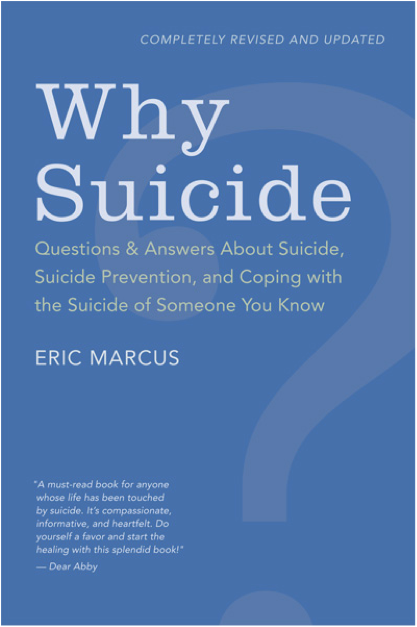On a visit to Columbia University, author and scholar Sujatha Fernandes explored the effects of manipulating storytelling in order to achieve desired results. In this article, OHMA student Renaldo McClinton will discuss the advantages and disadvantages of curating stories through social media and other digital platforms.
Read MoreA New Dawn: Eric Marcus’s Why Suicide & Oral History’s Healing Process
In this post, based on Eric Marcus’s presentation, current Oral History MA student Lizzie Li discusses suicide loss and oral history’s healing process.
Read MoreGDPR and the future of OHMS: A Scottish Perspective
In this post, current OHMA student Rebecca McGilveray explores the future of OHMS in the context of Scotland after Doug Boyd’s recent workshop, “Accelerating Change, Oral History, Innovation and Impact.”
Read MoreThe Synchronizer and the Sexatron
Eileen Welsome, a journalist and author, is a first-year OHMA student who in this post examines how a digital innovation at the University of Kentucky’s Louie B. Nunn Center for Oral History is making oral histories more accessible.
Read MoreThe Power of Digital Oral History: From Silence to Democratization
In response to Doug Boyd’s Nov 1 talk on Accelerating Change: Oral History, Innovation, and Impact, current OHMA student Michael Heesup Kimm reflects on how the multimedia transition has affected not only the process of conducting oral history interviews but also the way we store and disseminate such valuable recordings.
Read More“Transformative Oral History: Past, Present, and Future”
Illustration by Eunice Kim, not to be used without permission.
Eunice Kim, first-year OHMA student, explores the transformation of radio and digital cultures—how it influences the ways archived interviews are perceived, used, and listened to.
Read MoreNaming and the Gay Archive: Eric Marcus’ Making Gay History and Queering History-Building
Maya Garfinkel, Barnard College senior and History major, reflects on the power of naming in queer history-making, inspired by Eric Marcus’ OHMA talk on his project “Making Gay History.”
Tell me your story?
In response to Sujatha Fernandes’ talk on The Uses of Narrative in Organizing for Social Justice on October 4th, current OHMA student Nairy AbdElShafy reflects on how individuals choose to curate their own stories, when given the space and agency to do so and how this serves as a representation of their own culture and history.
Read MoreFriendly Reminders: Archive Your Interviews! Take Fieldnotes! Archive Those Too!
What happens when you have countless hours of people’s stories, stories that you know are extremely valuable, but no one else seems to see it in that way? When you have pages and pages of journal entries, field notes, or documents describing the beautiful encounters you’ve had with individuals that are relying on you to pass on their stories, but no one seems to care? Like Eric Marcus, you might store your cassette tapes (or mp3 files) in a dark storage closet only to find that you will later use them to create something beautiful and inspirational to many.
Read MoreThe Ethics of Curated Storytelling
Reflecting on Sujatha Fernandes’ talk on The Uses of Narrative in Organizing for Social Justice on October 4th, current OHMA student Tianrui Yu ponders the justice of story telling.
You have an archive? What's that?
Picture: archives as more than just a collection of books but as a living place of engagement, community and experience.
Current 2018 Oral History student Kim-Hee Wong explores the world of archives in reflection of a talk presented by Maria Cotera in the OHMA workshop series, Oral History and the Future: Archives and Embodied Memory.
Our Bodies, Our Archives
In this post, current OHMA student Storm Garner muses on Maria Cotera's presentation of the concept of an "embodied archive" using tattoos as an illustration.
Where Do We Go from Here? An Evening with Maria Cotera
In the first workshop of this year’s series, Maria Cotera spoke about her work with students within the academy to create an interactive archive decidedly outside of the bounds of the academy. In this piece Valerie Fendt wonders aloud what the future relationship might be between institutions of learning and a pedagogy built up from outside them.
“There’s a lot of eating that goes on!”
In this piece, current OHMA student Rebecca Kiil reflects on her role as oral historian in relationship to her narrators, after attending Maria Cotera’s recent talk, “Pan Dulce”— the first in Columbia University Oral History Master of Arts (OHMA’s) Fall 2018 workshop series: Oral History and the Future: Archives and Embodied Memory.
Read More











